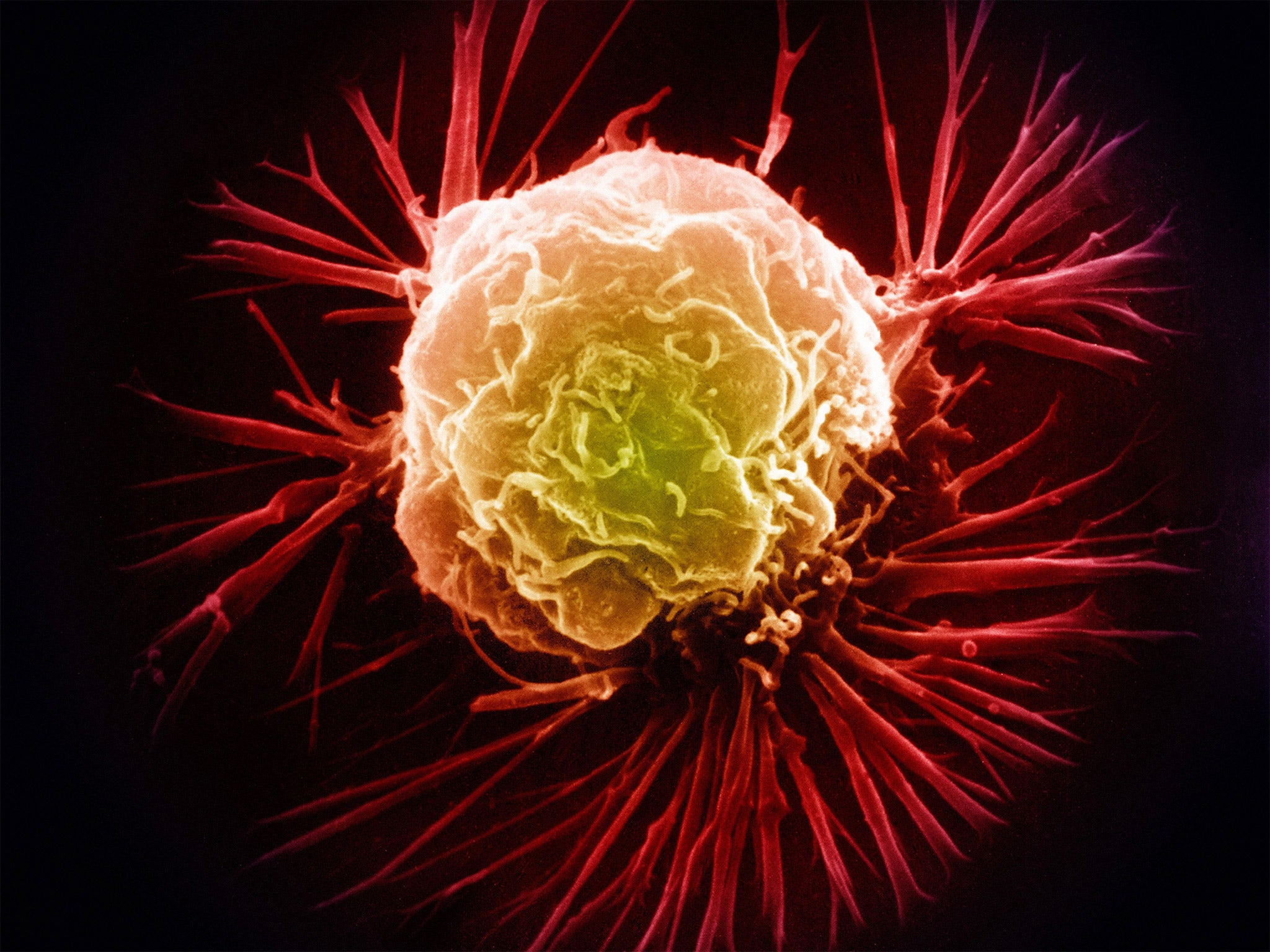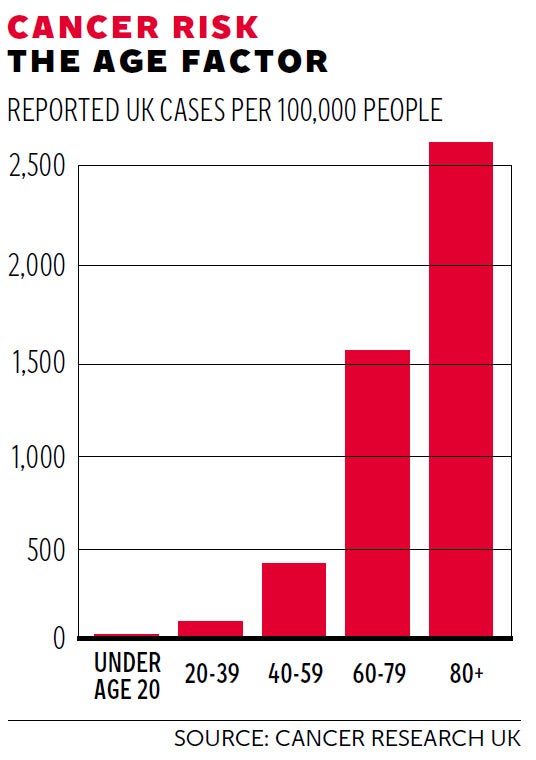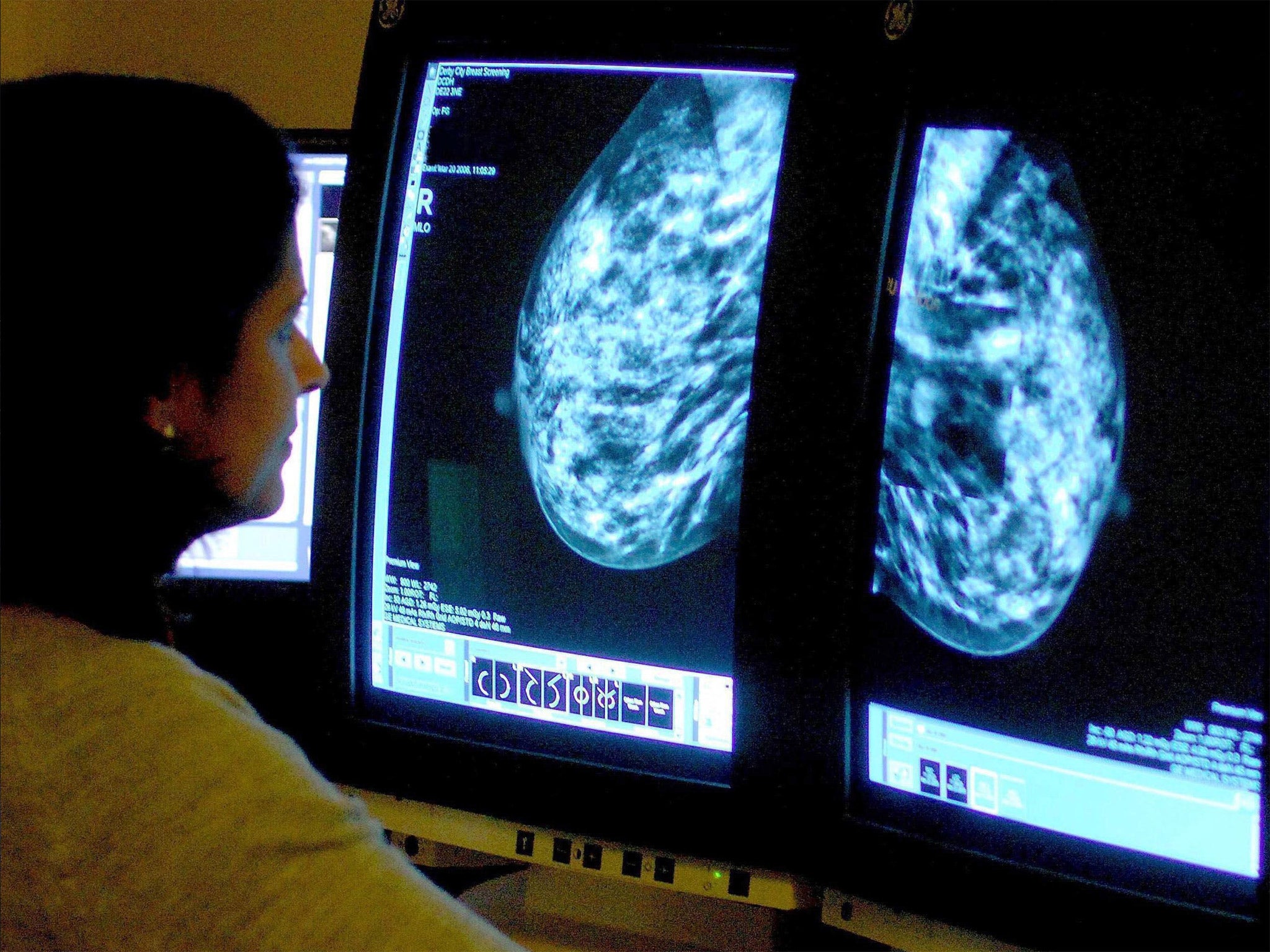World Cancer Day 2015: One in two British people will be diagnosed with the disease at some point in their lives
New Cancer Research analysis is grave

Your support helps us to tell the story
From reproductive rights to climate change to Big Tech, The Independent is on the ground when the story is developing. Whether it's investigating the financials of Elon Musk's pro-Trump PAC or producing our latest documentary, 'The A Word', which shines a light on the American women fighting for reproductive rights, we know how important it is to parse out the facts from the messaging.
At such a critical moment in US history, we need reporters on the ground. Your donation allows us to keep sending journalists to speak to both sides of the story.
The Independent is trusted by Americans across the entire political spectrum. And unlike many other quality news outlets, we choose not to lock Americans out of our reporting and analysis with paywalls. We believe quality journalism should be available to everyone, paid for by those who can afford it.
Your support makes all the difference.One in two people will develop a cancer at some point in their lives, experts now estimate.
Previous calculations that indicated cancer will affect just over one in three people were underestimating the scale of the disease, according to a new analysis by Cancer Research UK.
However, because of advances in treatment and early detection, more people are now surviving cancer.
Two-thirds of the increase in risk can be attributed to the fact we are now living longer, and cancer is a disease that becomes more likely the older we get. The additional third is down to changes in lifestyle, CRUK said. The study calculates the lifetime risk of cancer for men born in the UK in 1960 is 53.5 per cent and for women 47.55 per cent, averaging at 50.5 per cent. The risk is likely to increase for people born after 1960, and CRUK said it was confident in predicting that this meant at least half the population can now expect to get cancer.

“Cancer is primarily a disease of old age, with more than 60 per cent of all cases diagnosed in people aged over 65,” said cancer specialist Professor Peter Sasieni, who led the new study. “If people live long enough then most will get cancer at some point.
“But there’s a lot we can do to make it less likely – like giving up smoking, being more active, drinking less alcohol and maintaining a healthy weight.” The new calculation does not mean that each individual in the UK has 50/50 chance of getting cancer, as risk varies significantly according to age, weight, diet, as well as a range of lifestyle, genetic and environmental factors.
Recent estimates suggest that half of people who get cancer now survive the disease for 10 years or more – so it is projected that despite more cases, the number of deaths attributable to cancer will remain stable at around one in four.
Changes in lifestyle that have contributed to the increase in cancer risk include an increase in obesity, which is linked to a number of cancers and is projected to continue rising. Higher consumption of red and processed meats is also linked to a rise in bowel cancer. Other factors include an increase in the culture of using sunbeds and sunbathing, which has increased incidence of skin cancer, while women having babies later and breastfeeding less is also raising their chance of developing breast cancer. As well as this, more cancers are being detected by screening programmes.

CRUK’s chief executive Harpal Kumar, said that the NHS faced a challenge to ensure it was “fit to cope” with the increase in cases. “If the NHS doesn’t act and invest now, we will face a crisis in the future – with outcomes from cancer going backwards,” he said. Cancer services are already coming under increased strain, with the NHS in England having missed key waiting time targets for cancer patients for the first time last year.
Responding to CRUK’s study, which is published in the British Journal of Cancer, Macmillan Cancer Support said that the rise in cases would present “a Herculean challenge for the NHS and for society”.
“With cracks already beginning to show, the NHS will soon be unable to cope with the huge increase in demand for services,” said the charity’s spokeswoman Ellie Rose.
A Department of Health spokeswoman said: “Cancer survival rates are now at their highest level, and we are on track to save an extra 12,000 lives this year. But cases of cancer are likely to rise with an ageing population – so we are focused on earlier diagnosis, improving care and tackling preventable cancer.
“We have spent an extra £750m on cancer services and have given local authorities £8.2bn over three years to tackle public health issues, such as smoking, obesity and alcohol abuse.
Join our commenting forum
Join thought-provoking conversations, follow other Independent readers and see their replies
Comments